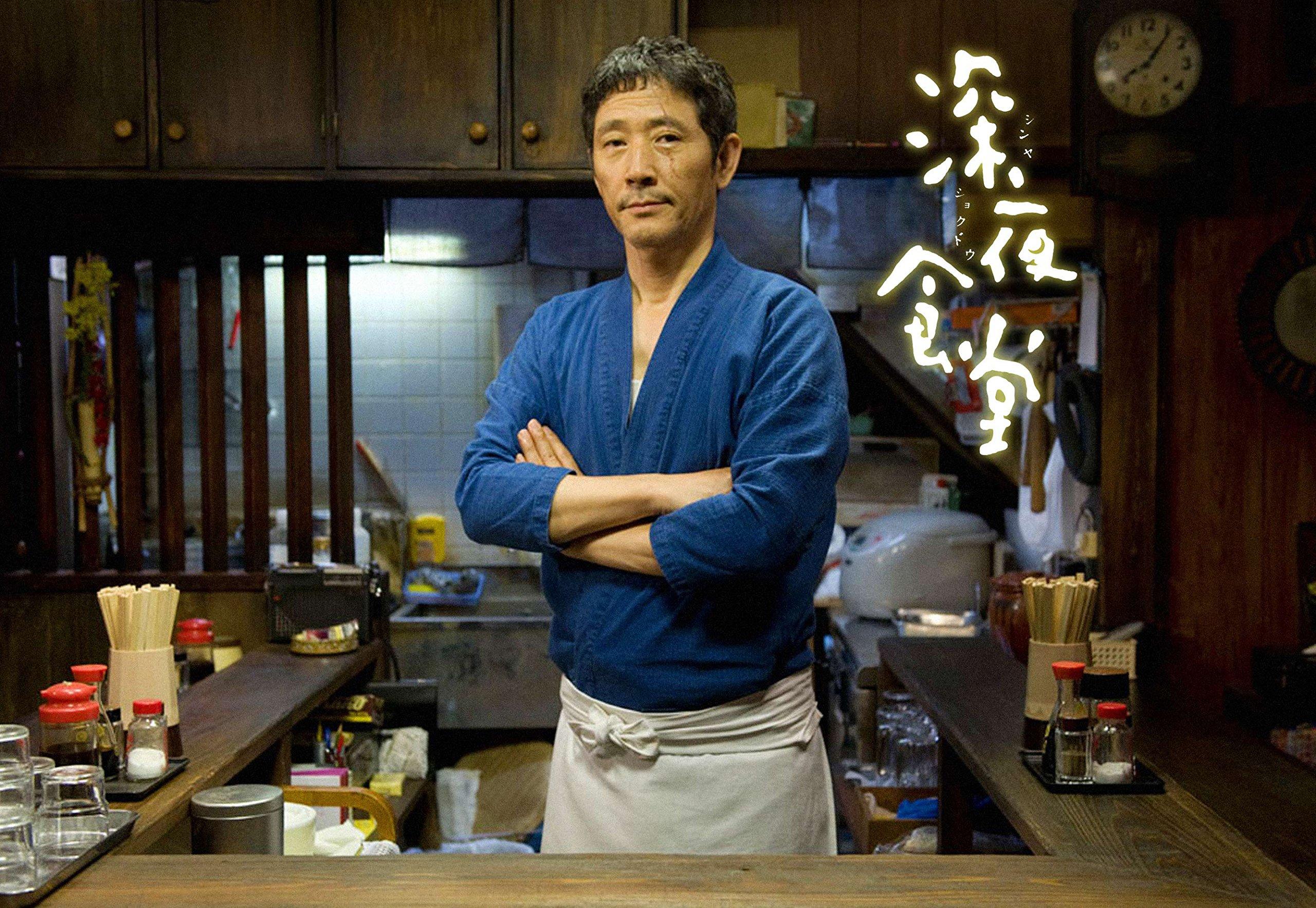The series "Late Night Cafeteria", which began airing in Japan in October 2009, tells the story of life between restaurant owners and customers, and from the beginning of the broadcast, it has not only gained popularity in Japan, but also blew a small whirlwind of late-night cafeterias throughout Asia.

So how did this seemingly simple low-budget chamber drama achieve such results?
<h1 class= "pgc-h-arrow-right" > a humane TV series</h1>
The reason why "Late Night Canteen" can capture people's hearts is because although its name is called Canteen, it not only tells the topic of food, but also uses the restaurant as a scene to tell a piece of life story, which is the biggest feature of "Late Night Canteen" that is different from "Lonely Foodie" and other food-based TV series.
It is also this kind of way of showing the "human feelings" between Japanese people to the audience, giving the audience a sense of freshness, especially this drama takes into account not only the interests of Japanese people, but also takes into account the tastes of people outside the Japanese, at this point, the producer Endo has done enough homework, in an interview, Endo has mentioned,
If it comes to TV dramas related to eating, then people will definitely compare "The Lonely Foodie", and our drama is not focused on food, but a TV series that uses a dramatic expression to shoot the sophistication between people. At the same time, I also want to convey the sophistication of Japan's people in addition to food to overseas audiences and friends.
Endo was successful in expanding the overseas market, from the event held in Shanghai in 2019 by Station B, in the exhibition area of "Late Night Canteen", the corner of the scene reproduced in the play was crowded with young people taking photos there.
Moreover, this drama has also been remade by China and South Korea, which shows its popularity in Asia.
From the steaming food to the warm human touch, it is precisely because of this quality that this drama has gone overseas from Japan.
<h1 class="pgc-h-arrow-right" > Japan where food dramas are rampant</h1>
When it comes to the number of TV dramas with food as the theme, I am afraid that there are no more tv series than in Japan. "Late Night Canteen" is of course a masterpiece worth mentioning.
Set in a tavern in the corner of a bustling business district, Kaoru Kobayashi's line at the beginning of each episode quickly brings the audience into context. "Open from 0:00 p.m. to around 7:00 a.m., it's called a late-night cafeteria."
Different ages, different circumstances, different genders of various customers patronage, just gathered next to the small bar, interpreting their different life situations, after watching each episode, give people a sense of satisfaction, that in addition to the satisfaction of food, there is also the emotional resonance of satisfaction.
The drama has attracted much attention not only in Japan and Asia, but also won the Silver Award in the Family Entertainment Category at the German World Media Awards in 2012, and of course, in Asia, it also won the most popular foreign TV series in the 2015 Seoul TV Drama Awards.
It can be said that "Late Night Canteen" is a classic case of going overseas in the Japanese food series TV series.
<h1 class= "pgc-h-arrow-right" > luxurious cast</h1>
A strong cast is also the key to the show's success. As the main actor, Kaoru Kobayashi is naturally not to mention Many Jean, as well as Toshiki Ayata, MatsuShige Toyo, Ando Tame, Yu Kimiko and Oda Chie jean and other powerful generals all appeared, which is also the key to this drama to get out of Japan.
Especially in the play, the faithful restoration of the original characters is also an indispensable main reason for the success of the play. The story of the manga of the same name, adapted from Abe's manga, is based on a mysterious presence with a clear scar on his left eye, whose name and origin are unknown, who does not speak much, maintains a sense of mystery, and also provides simple and simple food for customers who come to the store.
Kaoru Kobayashi played this character very similar to the feeling in the original book, that is, the feeling of an uncle with a story.
Several other characters with unique personalities in the original book, the gangster boss played by Matsushige Toyoshi, the owner of the gay bar played by Toshiki Ayata, and the dancer played by Yue Ando are all very grounded, and there is the feeling that they are the people we can usually meet around.
<h1 class="pgc-h-arrow-right" > south orange north citrus</h1>
This popular masterpiece is naturally remade localized. The Korean version began broadcasting in 2015 and the Chinese version in 2017. Although the scenes are all imitations of the original kind of tavern, the food made is localized.
However, the effect of the remake is far less than the original, and it is high from our Douban score alone.
After all, the atmosphere of the original work, the portrayal of the characters, and the setting of the storyline are all derived from the Japanese tavern culture, and only in that cultural background can the audience have a sense of presence. Especially for our chinese, the kind of tavern in the corner of the business circle, the kind of tavern that only has a bar, the kind of tavern that is still open in the middle of the night, is too strange to us, or for most of the Chinese people, there is no sense of substitution, and it can only end up with the result of the East Shi Gong.